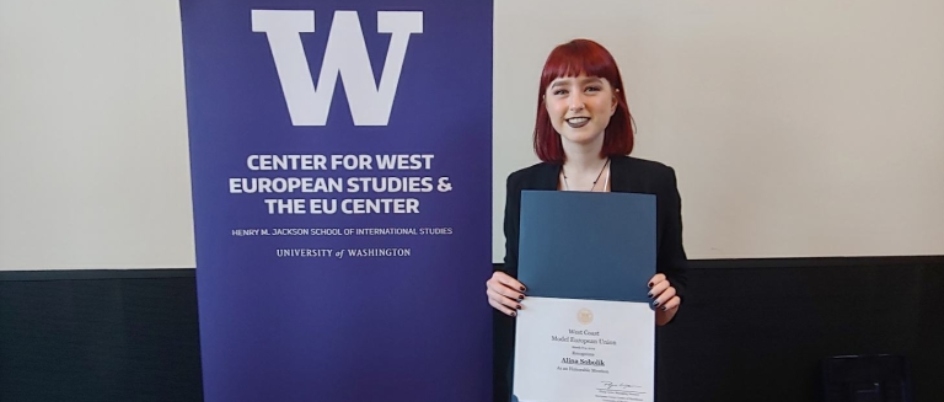Model EU Student Testimonials
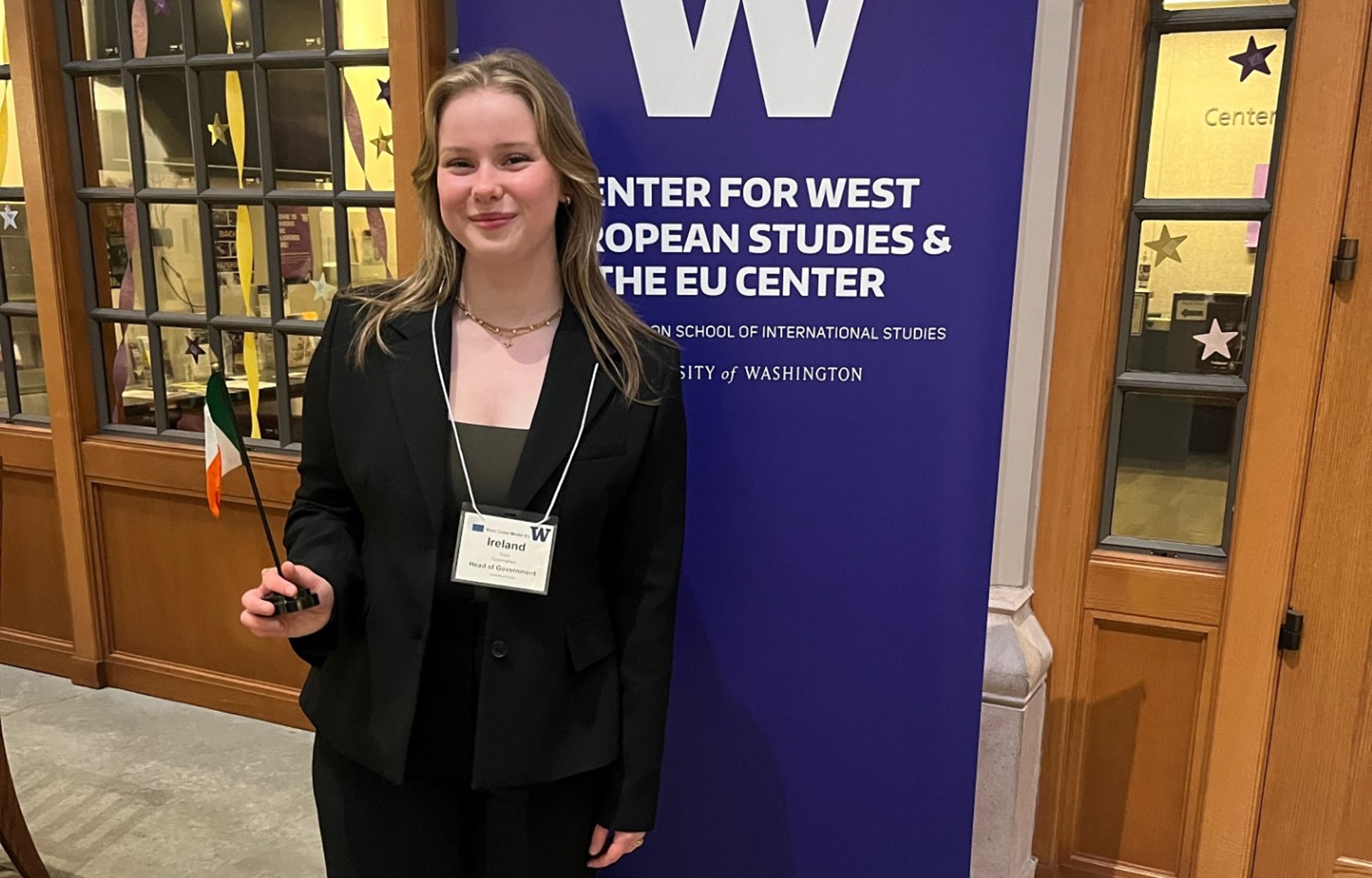
2024: Coco Cunningham, Head of State for Ireland (Honorable Mention)
I had the wonderful opportunity to participate in the 2024 West Coast Model EU and I had an amazing experience debating, drafting, and discussing a vast array of topics, such as EU defence and Turkish membership. I was the Head of State for Ireland and received an honourable mention award for my performance throughout the informal and formal debate sessions of the conference. I will forever be grateful for the relationships I crafted with students from all over the USA and Canada, all of whom were incredibly kind and intelligent. This experience has excited me for the upcoming EU Study Tour and has inspired me to pursue future opportunities of the same nature.
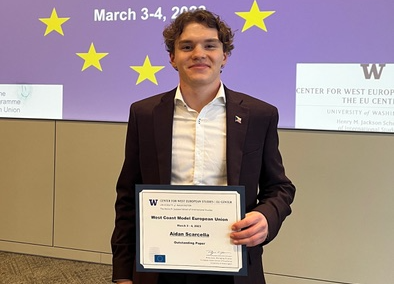
2023: Aidan Scarcella, Head of State for Czechia (Outstanding Position Paper)
The West Coast Model EU was a unique opportunity for experiential learning that can not be found elsewhere at UVic. The preparation and conference greatly furthered my knowledge of EU functions and enhanced my public speaking, negotiation, and research skills. WCMEU also afforded me an opportunity to network with like-minded individuals from across the world, and make connections that could last a lifetime.
2019: Alina Sobolik
I participated in the 2019 West Coast Model EU, an experience that was absolutely enriched by the hands-on knowledge I had gained on the tour. I was able to represent the Head of State for Poland and received the honourable mention for my performance. It was a fantastic experience. I met many like-minded students from Canada and the USA. Some of them were the same students who were at the Claremont conference, and one even happened to be in Brussels this summer, also completing an internship. The community of EU scholars in North America is small, making it easy to make meaningful connections and find accessible opportunities.
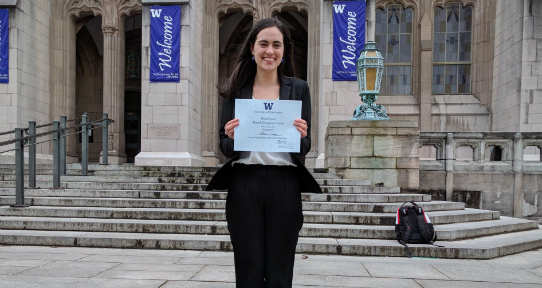
2018: Moira Louw, Minister of Agriculture for Hungary (Outstanding Delegate)
Read Moira's blog post for some more inspiration and advice.
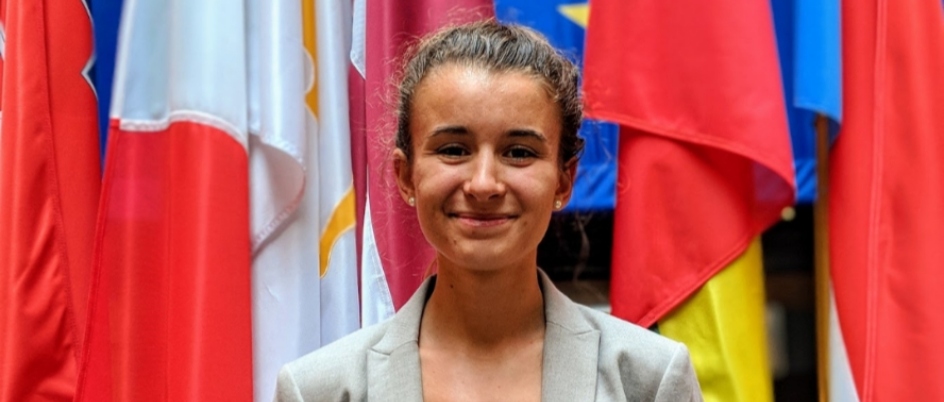
2018: Daphne Lewarne, Minister of Agriculture for Belgium
I have spent the last year working in Lima, Peru for Youth Challenge International as a Gender Advisor. We work for a local NGO to build their capacity in Gender Mainstreaming practices. My favorite thing about this job is that all our initiatives are led by participants or by the NGO, which after 40 years of experience, is extremely knowledgeable regarding the needs of the community. In this job I facilitate activities in Women's Only Spaces, and develop female governance structures and gender equality in technical institutes. The job is certainly challenging at times, but it is rewarding. If students are looking to get involved in this type of work, the Canadian Government's youth opportunities page is a great resource, and to find out more about the project I am currently involved with, check out EQWIP HUBS.
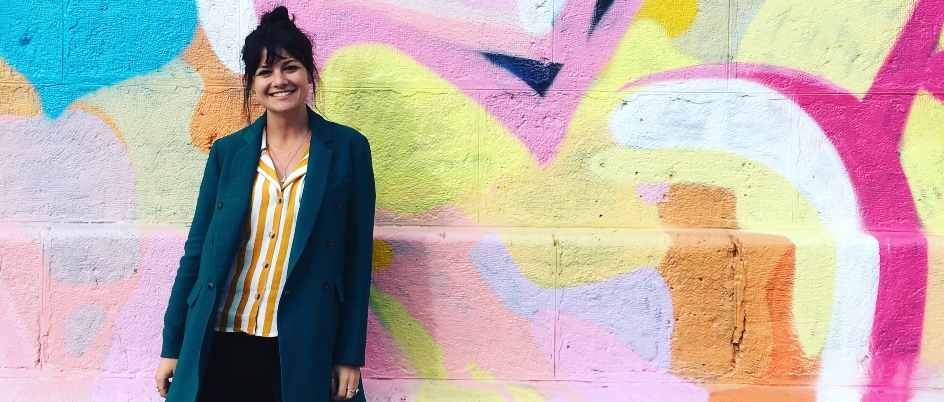
2015: Alexandra Dauncey-Elwood, Prime Minister, Denmark (Outstanding Head of State)
Currently, I am conducting my Master’s thesis field research in Denmark where I will spend the next three months interviewing international students and industry stakeholders regarding their ability to recruit and retain international talents in science and technology. My interest and pursuit of EU related research is owing to the University of Victoria’s European studies department. I first became involved in the department when I was selected to participate in the West Coast Model EU. There I represented Denmark, thus beginning my interest in Denmark and Scandinavia as a whole. During the Model EU, I was immersed in the EU process while learning extensively about the Danish approach to policies and the EU as a whole. I received the top delegate award for my representation of Denmark. I continued to be involved in the Model EU at UVic by mentoring delegates in the following years.
My experiences with the EU carried over to my selection of universities to which I applied for a Master’s. I selected Carleton University in Ottawa due to their European, Russian and Eurasian program and the ability to still study political science but collaborate with the department. There I took additional courses on the EU and kept writing about Denmark, so with the help of my supervisor, I secured funding – partly from the EU – to study international students’ transition to post graduate work in Denmark for three months, so I could truly experience what I had been researching for so long. Being in Denmark has provided me with an amazing opportunity to learn more about Danish and European culture, approach to research, and way of life, which is full of hygge and a strong desire for a positive work -life balance. Additionally, having mobility within Europe has allowed me to experience the many different cultures and people that make up the EU. So overall, the Model EU encourages students from all over the world to study EU-related projects, and EU grants offer incentives to students who are interested in studying, living, or working in the EU, which is exactly my case.

